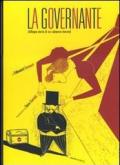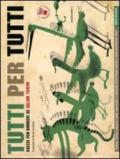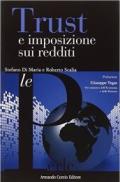
Learning How to Ask: A Sociolinguistic Appraisal of the Role of the Interview in Social Science Research
Charles L. Briggs
Interviews are ubiquitous in modern society, and they play a crucial role in social scientific research. But, as Charles Briggs convincingly argues in this book, received interviewing techniques rest on fundamental misapprehensions about the nature both of the interview as a communicative event, and of the nature of the data that it produces. Furthermore, interviewers rarely examine the compatibility of interviews as a means of acquiring information to one another. These oversights often blind interviewers to ensuing errors of interpretation, as well as to the limitations of the interview as a means of acquiring data. To conflict these problems, Professor Briggs presents an analysis of the 'communicative blunders' that he himself committed in conducting research interviews among Spanish-speakers in northern New Mexico. By focusing on these errors and exploring how they may be avoided, he is able to propose new techniques for designing, implementing, and analyzing interview-based research. These rest on identifying the subjects' resources for conveying information, and the relative compatability of the shared rules and understandings that underlie their strategies with those associated with interviews. Critical of existing paradigms of interviewing, which he sees as deriving from Western 'folk' theories of reality and communication, Briggs shows that the development of more sophisticated interviewing methodologies requires further research into interviewing itself. Briggs's conclusions provide a basis for the reexamination of current uses of interviews in a wide range of contexts - from social science research to job applications, welfare and health care delivery, criminal and legalinvestigations, journalism and broadcasting, and other areas of everyday life. His book will appeal to linguists, sociologists, anthropologists, historians, psychologists, as well as other readers whose research or professional activities depend on the use of interviews.
Al momento non disponibile, ordinabile in 3 settimane circa
Dettagli Libro
- Titolo: Learning How to Ask: A Sociolinguistic Appraisal of the Role of the Interview in Social Science Research
- Autore: Charles L. Briggs
- Curatore:
- Traduttore:
- Illustratore:
- Editore: Cambridge University Press
- Collana:
- Data di Pubblicazione: 2002
- Pagine: 00176
- Formato:
- ISBN: 9780521311137
- Agricoltura - Scienze agrarie
Libri che ti potrebbero interessare

Dioniso a Dizengoff
Tamar Berger

Venditempo. Ediz. illustrata
Levi Giulio

La governante. Allegra storia di un cada...
Edouard Osmont

Tutti per tutti. Poesie per bambini
M. Vanchetti, Julian Tuwim

La sfida per l'Africa
Wangari Maathai

Bella pugnalata
Saugo Alessandra

L'ombra della Gulfstream
Dario Lanzardo, Dario Lanzarolo

I vampiri di Ciudad Juarez
Clanash Farjeon, C. Vatteroni

Per avere tutto... e subito!
Maria Monsè

Trust e imposizione sui redditi
Rosario Scalia, Stefano Di Maria

Ibiza
Kuner Jean-Claude, Krause Patrick







